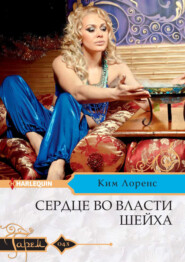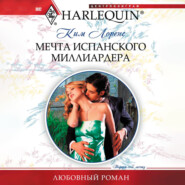По всем вопросам обращайтесь на: info@litportal.ru
(©) 2003-2025.
✖
The Sheikh Who Blackmailed Her: Desert Prince, Blackmailed Bride / The Sheikh and the Bought Bride / At the Sheikh's Bidding
Автор
Год написания книги
2019
Настройки чтения
Размер шрифта
Высота строк
Поля
‘I admit some of the technical language passed over my head.’
I doubt that, thought the Frenchman, not fooled by the self-deprecating response. The intelligence shining in the younger man’s eyes was one of the first things he had noticed. And even if he hadn’t noticed, it had become clear from the battery of searching questions he had asked that this man had mind like a steel trap.
‘Correct me if I am wrong,’ Rafiq invited, thinking, Please correct me. Let this all be a massive misunderstanding. ‘I have a rare blood disorder, and it has reached an advanced stage where there is no hope of cure?’ His dark brows lifted towards his hairline. ‘There is something else I need to know?’ His gesture invited the older man to expand.
Pierre Henri cleared his throat. ‘You are probably thinking Why me?’
Rafiq’s broad shoulders lifted as he stood to tuck the hem of his shirt into the waistband of his trousers. He paused to consider the question before replying. At six-five he towered over the seated man. Broad of shoulder and long of leg, Rafiq’s streamlined, muscle-packed frame was athletically formed, and it would have made him stand out even had he not possessed a face of startling, symmetrical male beauty, of the type normally seen on classical statues.
‘Why not me?’ Why should he be exempt from the capricious cruelty of fate? Innocents were given far worse to bear, and he was no innocent—but he was a man with a job to do.
He supposed that everyone in his position felt they needed longer—but he really did need longer.
‘Just so. A very … erm … healthy attitude—marvellous philosophy.’
‘So, how long do I have?’
Information was power—so they said. Even information you’d have been happier to remain in ignorance of. In Rafiq’s mind he equated power with control, and that was a commodity in short supply. He could feel it slipping through his fingers like grains of sand. He could definitely use a little top-up.
The older man’s eyes fell. ‘Well … erm … these things are very hard to gauge with any precision.’
In other words the news was not good. Rafiq mentally squared his shoulders. ‘Make an educated guess.’
‘You can, if you wish, have a second opinion.’
Many patients confronted by a diagnosis they did not wish to believe did so—especially those who had the finances to fly doctors from Paris by private jet for a consultation.
‘Are you not the best in your field?’
Rafiq was conscious that he ought to be feeling … feeling what? More, he supposed. But after the initial kick in the gut moment when he had realised the truth, he had felt very little except a sense of urgency.
‘How long do I have?’
‘It is hard to be definitive, but I’d say six …’
Rafiq recognised the man’s discomfort but felt little sympathy for it. Instead he was conscious of a growing sense of impatience. ‘Days? Weeks …? Months …?’ None would be long enough to prepare his little brother to step into his shoes.
‘Months.’
Nothing in the younger man’s demeanour suggested that he had just been given a death sentence.
‘Of course the progression of the disease can vary, and if you accepted the palliative treatment we spoke of …’
‘This treatment could affect my faculties, my memory?’
The doctor conceded the possibility with a nod. ‘It could extend six months to possibly a year, though.’
Rafiq dismissed the suggestion with a wave of his hand. ‘Out of the question.’
‘I can review your case weekly.’
‘As you wish, Doctor.’
‘I am so very sorry, Your Highness.’
The offer of sympathy drew a look of cold disdain from the younger man, who sketched a smile and murmured ‘You’re kind’ before excusing himself.
Out in the corridor Rafiq Al Kamil allowed his mask to slip, and his emotions bubbled to the surface in one vicious, corrosive explosion. With a curse he slammed his clenched fist into an innocent wall.
Through his closed eyelids he could still see the pity in the Frenchman’s face. Pity. It was one thing that he could not, would not endure. He recoiled from the idea of seeing that same expression on the faces of people when they met him.
His jaw hardened and a look of steely determination and pride settled on his patrician features. That wasn’t going to happen. Eyes closed, Rafiq expelled the pent-up emotion in one long, sibilant breath. He refused to give way to terror or pity. He would die as he would live—on his own terms. But first there was much to do.
His face set in lines of ruthless resolve, he made his way out into the sunlight. Half an hour later he found himself in the stables, with no recollection of how he came to be there.
Hassan, the groom who had put him on his first horse as a boy, approached.
‘Prince Rafiq.’ The older man’s manner was deferential but not obsequious as he bowed his head.
‘Hassan.’ Rafiq’s smile left his dark eyes bleak.
‘You wish me to saddle a horse?’
Rafiq reached out and touched the flank of the mare in the nearest stall. He nodded and said carelessly, ‘Why not?’
Riding in the desert was to him the most life-affirming experience possible—and for the moment at least he was still alive. The desert was where he always found himself at times of stress. The sight and sounds of the ageless landscape always cleared his head and restored his focus.
‘He is not in the best of moods,’ Hassan warned. ‘Restless and in need of exercise.’ He was looking at the Prince as he said this.
The information was unnecessary as the black stallion being led towards him rolled his eyes, reared up on his hind legs and pawed the air.
‘I think perhaps you both are …?’ The older man’s eyes held a concern he knew better than to express as they scanned the Prince’s face.
He had watched the Prince grow from a lively, animated child into the man he was today—strong, resolute, decisive and strong-minded. Yet he was capable of compassion—for all but himself. A man, in short, who embodied all the qualities people expected of a leader, though occasionally in an unguarded moment Hassan fancied he glimpsed briefly the mischievous little boy who had once haunted the stables. The little boy whose passing he regretted.
A man, Hassan reflected, should have a place he could let down his guard, and it saddened him that for his Prince the stables were the closest thing he had to such a sanctuary.
Rafiq stepped forward with a grin. ‘I think you are right.’ He flashed the groom a warm smile. ‘Thank you, Hassan. I will go and change.’
‘It is always a pleasure to be of service, Prince Rafiq.’
Gabby identified herself politely. Little option, really, when her path was blocked by two big, bearded men wearing black flowing robes. It had always been her policy to be polite to very large men dressed in black—especially when they were both gripping the jewelled handles of scimitars. Common sense told her the barbaric-looking weapons were purely ornamental—she hoped.
Actually, this entire venture was a lesson in hope, but she always had been a ‘glass half full’ sort of person—though the last two days had cut deeply into her natural optimism.
It was impossible to tell from the larger of the two men’s stony expression if he understood a word she was saying, so Gabby repeated herself—this time speaking more slowly and waving her hands descriptively.
‘I have an appointment,’ she lied. ‘I got lost. The King is expecting me.’

















